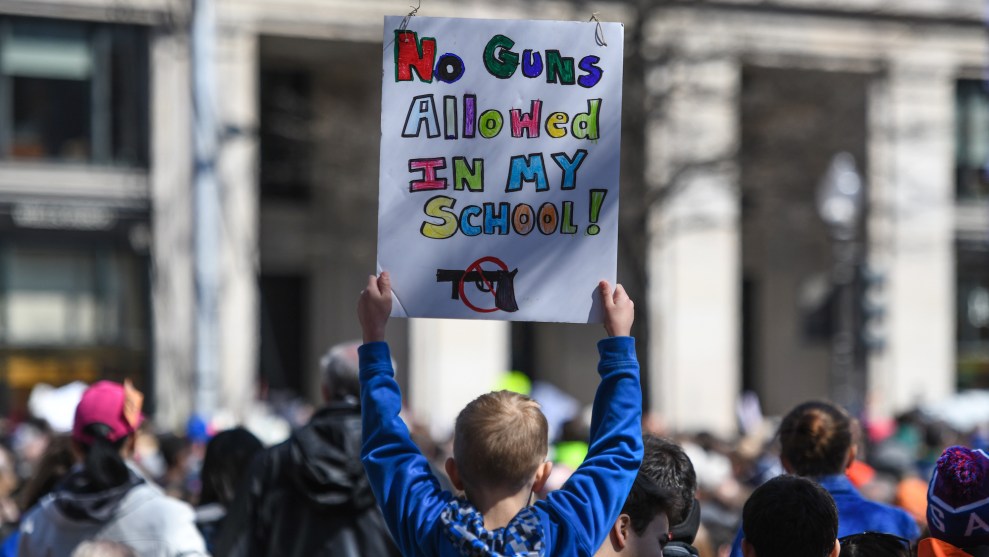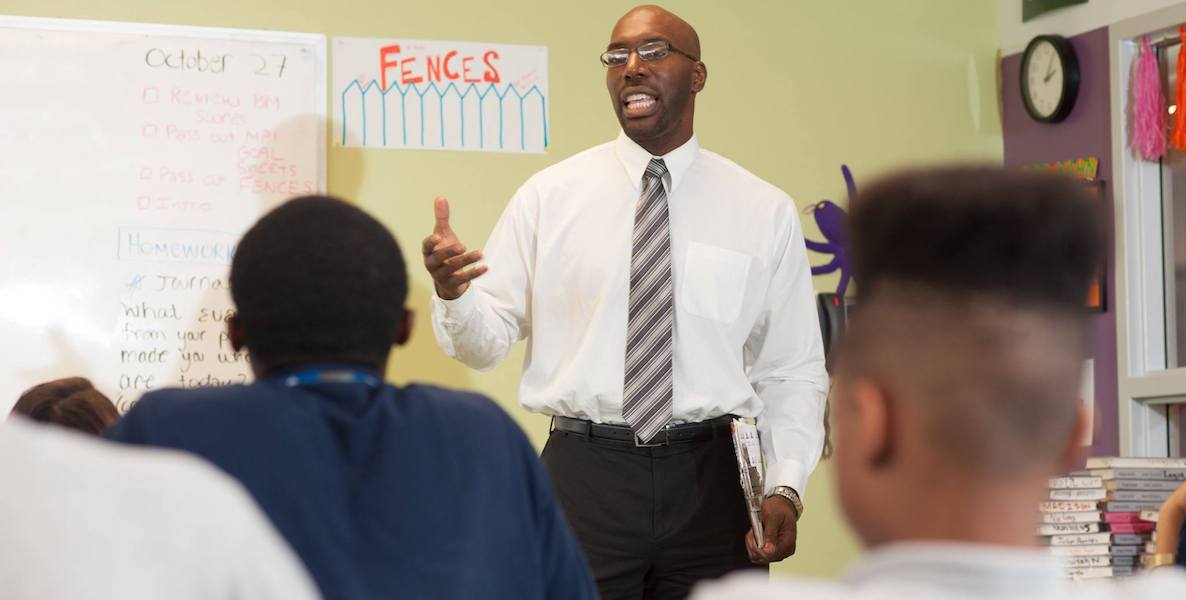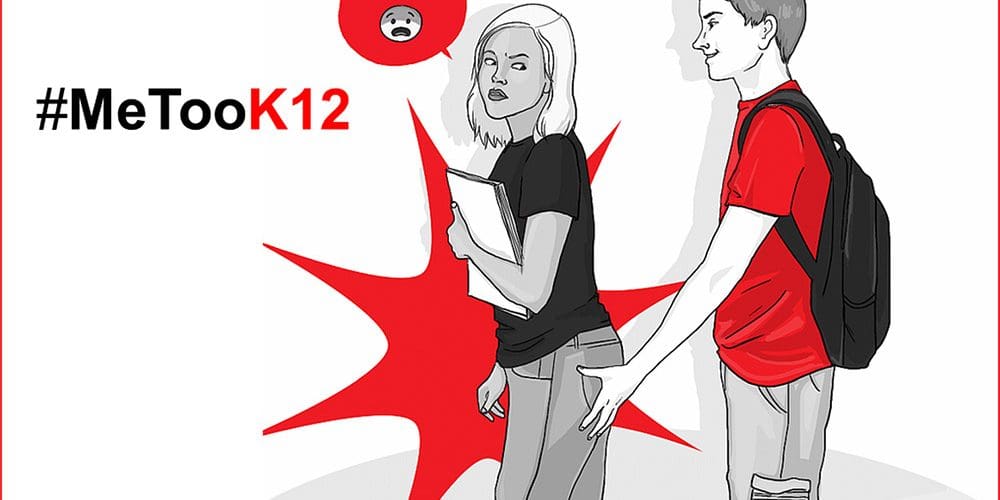Teachers and Gun Control Groups Paired Up to Ask Voters About Their Views on Gun Safety
Do they approve of Trump’s approach?

A young man holds a sign during the March for Our Lives protest in Washington, DC.Cal Sport Media/AP
The disturbing number of high-profile mass school shootings have forged an alliance between the gun safety movement and education advocates. Their partnership has been reinforced by the actions of the Trump administration in the aftermath of the February school shooting in Parkland, Florida, when it emphasized the importance of school safety measures instead of gun control.
Just weeks before the midterm elections, two prominent national organizations have come together to learn whether voters agree with the president’s approach. Today, they release a survey suggesting that in House battleground districts, they do not.
The survey, conducted by Public Policy Polling, a Democratic polling firm, was a joint venture between the Brady Campaign to Prevent Gun Violence, a national gun safety advocacy organization, and the American Federation of Teachers (AFT), one of the largest teachers unions in the country. The two have worked together on matters of gun violence and school safety since the 2012 Sandy Hook Elementary School massacre. Recently, they’ve been particularly concerned about the findings of Education Secretary Betsy DeVos’ commission on school safety—especially in light of reports DeVos is examining whether to use federal funds to arm teachers.
“We were interested in learning how folks on the ground felt about the efforts the [Trump] administration were working toward as opposed to the ones we’ve proposed,” says Kris Brown, Brady’s co-president. Brady, like the March For Our Lives student activists, advocates background checks for all gun sales, laws that keep guns out of the hands of those who Continue reading: Teachers and Gun Control Groups Paired Up to Ask Voters About Their Views on Gun Safety – Mother Jones




























